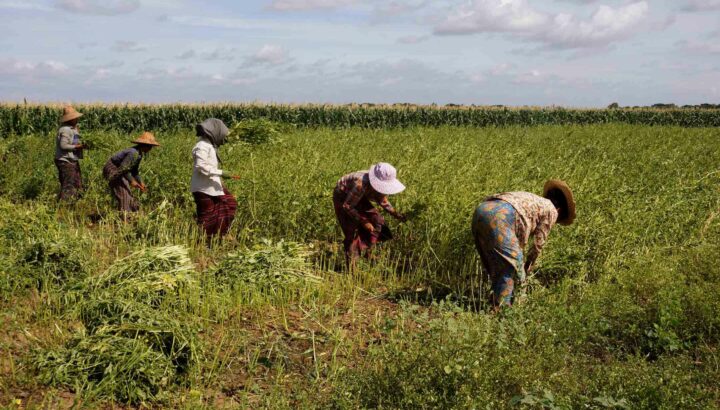The owners of the respective depots raised the objection to the raw sesame and peanut importation, said U Min Ko Oo, secretary of Myanmar Pulses, Beans and Sesame Seeds Merchants Association.
The association has asked for the opinions of the owners of the respective depots where sesame and peanut are primarily traded.
Maha Nyi Ahko Company sought import permit for 10,500 tonnes of raw sesame and 32,000 tonnes of peanuts under zero tariff with the contract manufacturing process. The Ministry of Commerce asked the opinions of the association whether there is trade balance in gross and value-added terms depending on the locally sourced materials against materials purchased from overseas suppliers.
The association was asked opinions on sesame raw material importation three years ago and responded that the peanut and sesame are locally produced, and it should not be allowed for importation, he said.
“This year, the Myanmar Investment Commission (MIC) asked for the points of views from the Commerce Ministry. The Ministry again forwarded it to the association. So, we requested the owners of depots from Sagaing and Magway regions to give their opinions on it. They strongly showed their disapproval on the import as it can harm the interest of the growers,” he pointed out.
Nevertheless, the association cannot afford to do anything as the raw materials can be imported to produce value-added items for exports under the existing law, he continued.
Myanmar’s peanut and sesame are of high quality with the use of natural fertilizer. They are offered fair price by China, Japan, South Korea and Thailand.
Additionally, Myanmar grants tax-exempt on raw material import if the goods are exported with a few exceptions. It has a direct impact on the interest of the local growers.
Myanmar has liberalized the trade and Mandalay depot sent 70 per cent of agricultural products to China through the land border. It generated the country’s revenue and brought benefits to the growers and traders. The border trade has halted during the early outbreak of COVID-19 and has resumed for now.
As a result of this, the import of individual company can harm the local market. Otherwise, foreign buyers can confuse outsourcing materials with locally produced materials. Market manipulation may arise later on.
We are welcome with the trade openness. Yet, it will harm the interest of the country, local growers and traders. Mandalay depot suggested that the import is not allowed.
The depot showed the further opinion that vacant, fallow and virgin land should be treated and the contract farming system is required to be conducted to boost the production and offer guaranteed pricing to motive the farmers to produce the quality crop.
(Translated by Ei Myat Mon)



